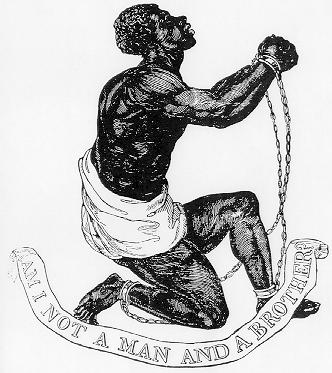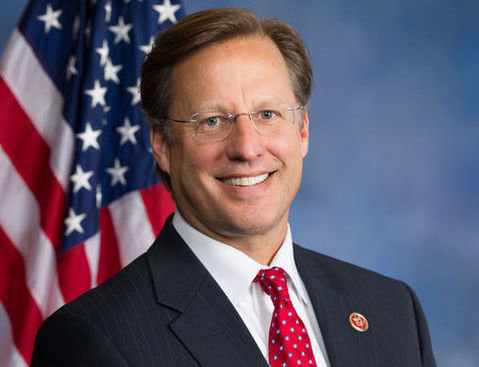My recent exchange with Bryan Caplan about tolerance (see here, here and here) suddenly seems terribly topical in light of events in France last month, where 12 people were killed in a murderous attack on the French satirical newspaper Charlie Hebdo, by gunmen shouting “Allahu Akbar!”
The attacks may strengthen anti-immigration parties in Europe, and they have provoked attacks against Muslims. They seem to lend support to the tolerance=>migration restrictions argument that I mentioned at the end of the last post in my back-and-forth with Caplan:
2. Tolerance => Migration restrictions. Tolerant moral and social values are a distinctive Western achievement which will be diluted if we let in foreigners from less tolerant cultures. So we should keep most foreigners out.
Now, you don’t have to think tolerance, as a concept, does much useful work in ethical or political argument, to think this kind of intolerance is a big problem. In one sense, tolerance is beside the point: what France needs to do isn’t so much to promote tolerance as to prevent murder. Still, if intolerant attitudes were the motive for murder, promoting tolerance might promote public safety. But public safety would be equally promoted if intolerance were kept peaceful. And peaceful intolerance– scorn and ostracism– for the kinds of attitudes and views that lead to violent intolerance, might be an effective way of making such attitudes scarce.
My take on tolerance, Islam, and open borders may sound paradoxical. I view Islam as inherently, and perhaps incorrigibly, intolerant and violent. But I nonetheless believe that the West and the world generally should be much more open to Muslim immigrants. Why? Because even Muslims shouldn’t have to live under Muslim rule.
On Charlie Hebdo
The attackers were avenging the paper’s depictions of the prophet Muhammad, and most recently, a cartoon depicting two men kissing, one in Muslim dress and the other labeled “Charlie Hebdo,” with the slogan “Love is stronger than hate.” From a Muslim perspective, I suppose, the cartoon is pornographic as well as blasphemous. I agree with the attackers in considering it offensive, though obviously not in how they responded. It’s symptomatic of the contemporary West’s degradation of the old Christian virtue of love into mere sensuality, as well as of its obsession with homosexuality. And there is a bitter irony in a cartoon that pretends to proclaim love while deliberately insulting those for whom it is pretending to advocate love.
I found the pope’s remarks in the Philippines refreshing. “Killing in the name of God is wrong,” he said, but also that it is wrong to belittle someone’s religion, adding that if a friend “says a swear word against my mother, then a punch awaits him.” I’m wary of the suggestion that violence can be an appropriate response to speech, but as a moral matter, we should have strong inhibitions against mocking what others hold sacred. If we do so– as God sometimes does in the Bible (or even more memorably, Elijah)– it should be with the loftiest of motives: to challenge evil powers, dispel myths, and save souls. But while I don’t think one should gratuitously offend Muslims by depicting Mohammed, serious criticism of Islam is another matter. We need more of it.
On Islam
It can be conceded, I suppose, that the Charlie Hebdo perpetrators don’t represent Islam: they went a bit further than most Muslims would. But the idea that Islam is a “religion of peace” is only wishful thinking; Sam Harris is closer to the truth. The advent of Islam ushered in a thousand years of tyranny in the lands the Arabs conquered, and as Rowley and I showed in a 2009 paper, there is a striking democracy deficit in the Muslim world to this day, especially in the historic heartland of Islam, the territories conquered by Islam before 800 AD. We found that there were no democracies at all in Islam’s historic heartland. Moreover, the correlation between GDP and democracy is reversed in Islam. In the non-Islamic world, higher GDP per capita is associated with a greater likelihood of democracy; in Islam, with a lesser likelihood. Islam’s freedom deficit is worse than its democracy deficit. The lack of religious freedom, in particular, is strikingly captured by the fact that apostasy is legally punishable in most Muslim countries, sometimes by death, which seems to have been the normal penalty for apostasy before the arrival of European colonialism.
Tolerance vs. freedom of conscience
I am not all that worried about Islam’s democracy deficit per se, since I regard democracy as a considerably overrated form of government. But democracy is, so to speak, overrated for a good reason, namely, that it is correlated with something much more important: freedom of conscience. But the freedom that Charlie Hebdo exercised, and that the terrorists violently cut short, is not a part of what I consider freedom of conscience.
There are a number of expressions which some hear as nearly synonymous with “tolerance,” but which, under closer scrutiny, vary in meaning, though they also overlap. “Freedom of speech” is a venerable phrase, but we don’t mean it literally. By what principle is it OK to prohibit perjury, false advertisement, inciting a crowd to violence, libel, and certain IP violations, if “freedom of speech” is sacrosanct? And on the other hand, how are Charlie Hedbo‘s cartoons protected by freedom of speech? “Freedom of thought” is very important but doesn’t demand enough: in a narrowly logical sense, a prisoner in chains is still free to think as he likes. “Free inquiry” is a noble ideal, in defense of which Socrates was martyred; but we want the freedom not only to inquire after truth, but to preach it when we find it. “Freedom of the press” makes the extension of free speech to printed material explicit; “freedom of expression” sounds vaguer but seems to cover all media.
“Freedom of religion” is narrower than freedom of speech, but includes elements of “free association” as well, e.g., the right to assemble with fellow believers to worship God. Problematically, “freedom of religion” crosses the line between speech and action, and it violates freedom of religion to be forced to bake a cake for a gay commitment ceremony even if you’re allowed to protest all the while that you don’t believe in it. It might also be a violation of freedom of religion to have to work on Sunday, or provide contraceptive coverage for one’s employees, or refrain from giving alcohol to children. Free speech sometimes crosses the speech/action divide, too, e.g., if people demand the right to conduct public protests– disrupting traffic, etc.– in the name of free speech.
My way through this confusion is to stress freedom of conscience as the key principle that explains all the others and defines their scope. Freedom of conscience is my right to obey conscience, to do what is right and refrain from doing what is wrong. “Free speech,” “free press,” and “free expression” mean freedom to state the truth as I see it, in whatever medium is most expedient, to speak as conscience compels me to speak. But my conscience doesn’t necessarily deny to the government a say in what media are expedient. If, for example, all print media were prohibited for environmental reasons, “freedom of the press” in the literal sense seems clearly extinguished, but I would not regard that as a violation of freedom of conscience. “Freedom of religion” is of special importance because conscience obliges me to worship God, and more generally, for Christians, what religion commands and what conscience commands are essentially identical. “Freedom of association” requires not only that I be able to assemble with fellow believers to worship God, but also that I be able to collaborate with a team of bloggers to advocate open borders, because both of those activities arise from the demands of conscience; but it is not a violation of freedom of conscience, even if it is a curtailment of freedom of association, if I’m forbidden to found a company with a whites-only hiring policy.
I would regard an environmentalist prohibition of all print media as very foolish, and I’m skeptical about whether the government either has the right or is well-advised to prohibit workplace discrimination. But since such policies, even if unwise, do not violate freedom of conscience, I am relatively relaxed about them. But when freedom of conscience is violated, when the government commands someone to do what is wrong, or forbids someone to do what is right, a deep alienation occurs, and the social contract is shattered.
Patrick Henry’s ultimatum, “Give me liberty or give me death!” might have been a bit overwrought as a response to the mild misrule of King George III. But it is absolutely correct as a response to threats to freedom of conscience. A person who would surrender his freedom of conscience even in the face of certain death is, in the end, a person not worth knowing, a person whose actions and utterances have no real meaning, a person without value, except inasmuch as he might repent someday and become brave, become fully human, become real. Why trust a person’s utterances, when they are only a function of his circumstances? Society bribes us in all sorts of subtle ways to lie, if we’re willing to be bribed. Socrates and Jesus preferred death to denying the truth, to doing what is wrong. So should we all.
I have a tentative and vague preference for democracy over the alternatives. I have a firm, definite, and strong preference for market capitalism over the alternatives. But neither democracy nor market capitalism matters much relative to freedom of conscience. Any amount of unaccountable autocracy or needless and inefficient regulation is preferable to being forced by the state to do what one knows is wrong, or prohibited from doing what one knows is right.
In defense of Voltaire
Now, in Bryan Caplan’s recent dissent from the militant tolerance of Voltaire, I detect a reluctance to be drafted into fighting for freedom of the press as exercised by Charlie Hebdo, which I share:
If standing up for your own right to utter truth X is a grave mistake, why is standing up for someone else’s right to do the same any better? Indeed, common sense morality says you have only modest obligations to help perfect strangers in dire need. Why then should you assume a blanket obligation to die in defense of strangers’ rights to speak when they could easily remain silent?
But my reasons are a bit different. The conduct of Charlie Hebdo was gratuitously offensive. It certainly didn’t deserve death, but they didn’t deserve to be elevated to hero status by mass marches either, and it might, just possibly, be sensible for civilized societies to say that Charlie Hebdo kind of had it coming, and that protecting such useless, reckless, and vicious behavior isn’t the best use of scarce police resources. But when Caplan writes that…
Sure, you can devise hypotheticals where courting death by asserting the right to say X is an admirable choice. Maybe standing up for the right to say X will, via your death, save many innocent lives, or replace an awful tyranny with something much better. Maybe you only have ten minutes left to live, and want to go out with a noble bang. Except in such unusual circumstances, however, throwing your life away to speak a few forbidden words seems not only imprudent, but wrong. Any true friend would beg you to come to your senses and shut your piehole.
… he treats as odd “hypotheticals” what is really the normal situation of the courageous person speaking truth to power. Socrates and Jesus, the apostles, the Christian martyrs, and Martin Luther King all spoke truth to power and died for it. Just for that reason, their historical impact is wildly disproportionate to their numbers, and infinitely beneficent. For everyone who spoke truth to power and died for it, there are probably a hundred who spoke truth to power knowing that they might die for it, and where would the human race be without them? How much of the moral progress of mankind, in the end, is traceable to such people? Half? Nine-tenths? As the song says, “He freed a lot of people, but it seems the good, they die young.” Bryan Caplan calls himself (or at least invites others to call him) a “coward” at the end of the post, and says that “staying alive> asserting your own right to say truths.” A nation of such cowards is a nation of slaves.
The point Caplan is missing is that we all face a collective action problem, which is captured in (let’s call it) the Parable of the Playground. Suppose there are 50 Nerds in the playground, and 1 Bully. The Nerds are nice, tolerant, productive, independent-minded people who make the world a better place. The Bully is an intolerant, parasitic thug. Collectively, the Nerds are stronger than the Bully, but the Bully is stronger than any 1 Nerd alone. The Bully threatens to beat up any Nerd who speaks against him. If the Nerds think “staying alive > asserting your own right to say truths,” then no one will ever be able to tell the truth. But if the Nerds believe, with Voltaire, that “I disapprove of what you say, but I will defend to the death your right to say it,” then as soon as the Bully enforces his rule against one Nerd, he’ll be challenged and defeated by them all. Such is the foundation of courage on which free societies are built.
So we should certainly be ready to fight for our own freedom of conscience and that of others; but what is the scope of this freedom? I have said that freedom of conscience is the freedom to do what is right and refrain from doing what is wrong, but our knowledge of what is right and wrong must be fallible, since there is so much disagreement about it. So should freedom of conscience mean the freedom to do what is really right, or the freedom to do what we think is right? Here a balance must be struck: some accommodation of eccentric ideas of right and wrong is needed, but we can’t respect the freedom of conscience of the armed jihadist. It’s all manageable enough as long as there is a certain degree of right-minded consensus about what conscience demands, such as prevailed in 19th-century America, where almost everyone was a Christian of some sort. In today’s America, afflicted as it is with people who think it’s morally acceptable to force photographers to serve at gay commitment ceremonies, I have grave doubts about the sustainability of freedom of conscience.
On courage
And that is one reason why I’m relaxed about Muslim immigration: I’m less afraid of Muslim intolerance than of the home-grown sort. I’d much rather have occasional random terrorist attacks against the publishers of gratuitously offensive cartoons, than Swedish-style arrests of pastors for preaching against homosexuality. Doubtless, the Charlie Hebdo attackers wouldn’t like an outspoken Christian apologist and critic of Islam like myself. But I’m much less afraid of them than I am of the PC police and the rising LGBT state.
More importantly, though, I want freedom of conscience for Muslims, and I think they’re unlikely to get it in their home countries any time soon. If you believe, as I do, that Islam is a false religion, then you ought to be very concerned about the fact that hundreds of millions of people live in countries where they are forced to believe it, or pretend to believe it, on pain of losing civic rights or even their lives. While I’m an unapologetic supporter of the 2003 liberation of Iraq, I think it’s clear that the West can’t impose freedom, least of all religious freedom, on the Muslim world by force (even if we can and should overthrow the worst totalitarian regimes). For the foreseeable future, the path to full freedom of conscience for Muslims is emigration. The West should give them that chance, even if it involves some risk to ourselves.
And that is why I don’t believe Caplan’s confession that he’s a “coward.” He surely knows there are risks, risks to the freedom of speech which few take more advantage of than he does, in letting in tens or hundreds of millions of immigrants, but he still wants to do it. He’s got a comfortable and secure life, but he’s willing to jeopardize that for the sake of a reform that he knows would be a great leap forward for the liberty and flourishing of mankind as a whole. I call that courage. Meanwhile, the nativist cowards are in a panic to build the walls higher.
Open Borders editorial note: As described on our general blog and comments policies page: “The moral and intellectual responsibility for each blog post also lies with the individual author. Other bloggers are not responsible for the views expressed by any author in any individual blog post, and the views of bloggers expressed in individual blog posts should not be construed as views of the site per se.”
UPDATE: In addition to the comments here, you might also be interested in some discussion of this blog post in the comments on an Open Borders Action Group post about the blog post.
Related reading
- Open borders, terrorism and Islam by Joel Newman, Open Borders: The Case, May 7, 2013.
- Free speech absolutism versus viewpoint-based immigration restrictions by Vipul Naik, Open Borders: The Case, October 8, 2012.
- Immigration and institutions by Nathan Smith, Open Borders: The Case, October 8, 2012.
- Open borders and tolerance by Vipul Naik, Open Borders: The Case, December 2, 2014.



